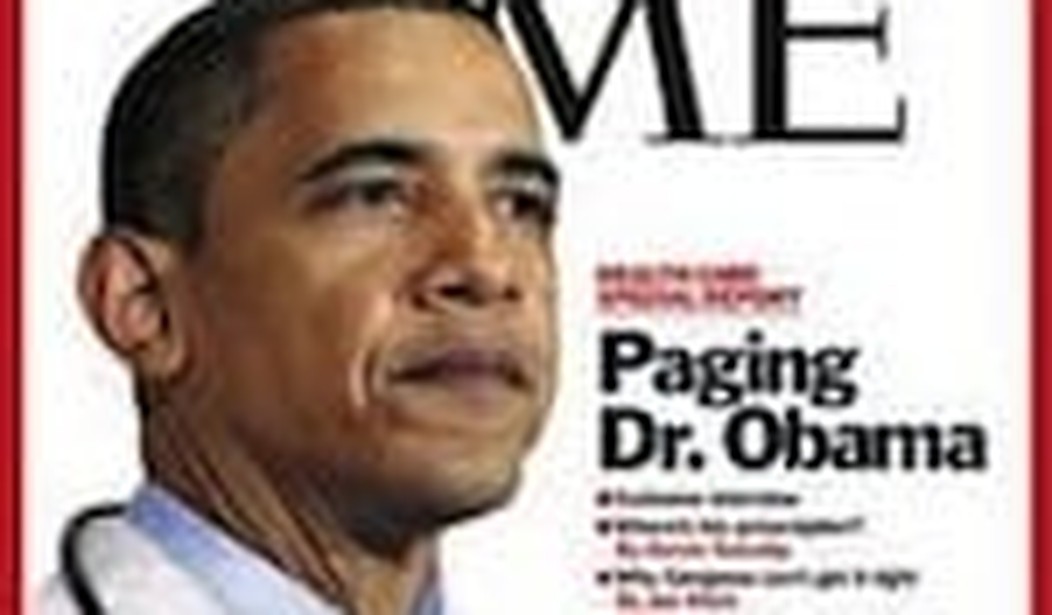If President Barack Obama is reelected, it seems certain “Obamacare” will be fully implemented. Dr. Rick D. Schoeling, a primary care physician in Pittsburg, Kansas, tells PJM that if he were in the position of considering medical school today, he would choose to avoid medicine entirely:
Oh no, no way. Nine out of 10 physicians right now recommended that their family not become physicians. It used to be families would all be in medicine; not anymore.
Schoeling, who graduated in 1986 from the well-regarded University of Kansas School of Medicine, said the effects of Obamacare, if it were to be fully implemented, would be far-reaching and detrimental:
We will lose a lot of the patient/physician relationship, in that instead of me recommending to the patient what kind of screening test or things like that, it’ll be much more of a cookbook kind of thing.
That fundamentally isn’t the expensive thing, but that’s been the thing that most physicians treasure, most patients treasure — that ability to have that open communication and that control over your patients’ health care.
Many critics of the legislation say millions of people will move from private insurance — already expensive for doctors to manage — into the Medicare and Medicaid systems. It’s a move which will put a strain on doctors, who already struggle to break even on the Medicare and Medicaid patients they have.
Schoeling said he expects a rise in Medicare and Medicaid patients if Obamacare is fully implemented, and while he currently continues to see the Medicare and Medicaid patients he has, he’s not accepting new ones:
If we’re (lucky Medicaid is) 20 to 30 cents on the dollar from what we get from insurance rates. Obamacare cuts $716 billion from Medicare. The way that’s implemented is it will be a 27.1 percent cut in reimbursement in Medicare and Medicaid patients to private physicians and hospitals. Medicare is about 35 percent of my total practice and it affects internists even more because it’s almost 70 percent of their total practice.
The law will also make it impossible for doctors to cut a deal with people who prefer to simply pay for their own care:
My self-pay patients get a 30 percent discount. It’ll be illegal. According to them, there won’t be any. There will still be self-pay, there will be some people; what are you going to do to them?
Moreover, Schoeling said, this makes the president’s assertion that people who want to keep their current doctor will be able to simply untrue:
We probably won’t see new Medicare patients for sure, but most doctors will have to get rid of Medicare patients. They say you can keep your same doctor, but if he can’t afford to see you then you aren’t going to keep him.
As it sits now, just billing the insurance companies and dealing with regulation is a significant expense for local physicians, who, it should be noted, are also small businessmen. Schoeling said the American Medical Association estimates that the average cost for physicians just to do the paperwork to be reimbursed by insurance companies is $85,000 a year:
I pay a little more than that. I pay about $110,000, but that’s because I’m in primary care and we have a lot more fights to do than specialists.
Dealing with regulations, he said, adds another $20,000 to $30,000 every year:
We are required to be on all these committees for the hospital, because they have all these federal regulations they have to meet.
I spend at least an extra five hours a week just on meetings to meet regulations, and some weeks it’s much more.
Most of his billing is sourced out, but it takes about one-half of a full-time equivalent each week, or about 20 hours, just to deal with regulations. Under Obamacare, the billing situation will get more complex. The legislation forces communities to set up something called an accountable care organization (ACO). With the ACOs, billing to the insurance goes to the accountable care organization, which then cuts a check to the doctor — which adds another layer of bureaucracy. Schoeling said that group then decides who gets paid what:
We all then have to figure out some system how we’re going to get paid and you can imagine how much that’s going to cost. We’re all going to have to figure out how much we’re going to get paid individually, what specialty is going to get a certain amount for office visits, and it’s obviously going to be less than what we’re getting now.
Moreover, Schoeling said, no one is really sure how to set up one of these ACOs. He said four large ones have already been set up, and in every one the cost has been 18 percent higher than if things had just been left alone.
The overall effect for doctors and patients alike? Fewer choices and more expense, according to Schoeling.
The effect … a lot of primary care physicians will no longer be in private practice. Even the AMA estimates that 60 percent of physicians over age 50 (the average primary care physician is in his late 50s) will leave practice within three years.
He said some will go to work for hospitals or the government — but those close to retirement will likely hang it up:
If it was really going to save money, you might think maybe it was a good thing, but it’s not. It’s about control. It was never about money, it was always about control. They’re going to make it impossible for private physicians to stay in practice. There’s no way conceivable, if this is implemented as it is, I will be able to stay in private practice.









Join the conversation as a VIP Member